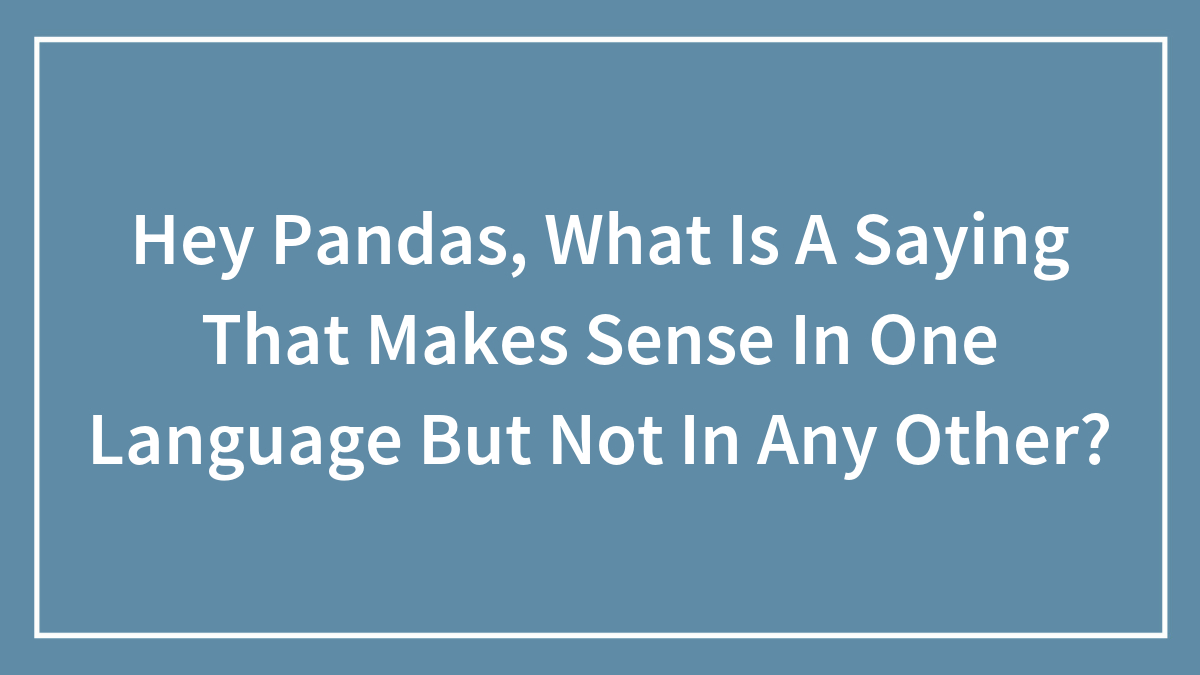
473views
10submissions
Finished
Hey Pandas, What Is A Saying That Makes Sense In One Language But Not In Any Other?
Language is weird...
This post may include affiliate links.
I'll start.
Estoy hecho un ají (Spanish). It basically just means 'I am very angry', but the direct translation is 'I am made into a chilli pepper'
„Das ist ein dicker Hund!“ = „That‘s a fat dog!“
We say this in Germany to express that something is unfair/outrageous.
a la verga
in Spanish its supposed to mean f**k this but English translation says otherwise
English translation: to the d**k
German:
Er/sie erzählt viel, wenn der Tag lang ist. -- literal meaning: "He/she/they talks a lot if the day is long."
Meaning: you shouldn't believe everything this person says (they talk a lot and mostly BS).
Spanish:
No hay color -- lit. "There is no colour" Meaning: these two things don't compare/difference like night and day.
Tu eres la leche -- lit. "You are the milk"
Meaning: you are amazing!
Manda huevos! -- lit. "Send eggs!"
Used to express surprise/disbelief/irritation
(Not my native language but I find Spanish sayings hilarious when translated literally into English)
You're right, direct Spanish translations are really funny, I like 'Tu eres la leche' the best
Spanish: No hay burro calvo, ni calabaza con pelo.
English: There isn’t any bald donkey nor any pumpkin with hair.
The fact that some languages curse as "motherf**ker" and others as "I f**k your mother", like make up your mind... Also, there's the Greek one that goes: Στη πούτσα μου λουλούδια και γύρω γύρω μέλισσες (on my d**k are flowers and bees flying around aka I don't give a f**k)
Indonesian:
Masuk angin. The words literally mean enter (masuk) and wind (angin). It means you're feeling under the weather like you feel a cold or flu coming.
Turkish: Kolay gelsin
English translation is “may it come easy to you” which we say when we see/pass someone who’s working, wishing the work will be easy for them. I really like it because you can say this to a stranger sweeping the leaves in autumn and it’s just a small, kind interaction.
German: Tomaten auf den Augen haben
"Have tomatoes on your eyes" meaning not seeing or not wanting to see something obvious.

 Dark Mode
Dark Mode 

 No fees, cancel anytime
No fees, cancel anytime 






































![“AITA For Losing [It] And Screaming At GF To Get Out Of My House After What Her Stepbrother Did?”](https://www.boredpanda.com/blog/wp-content/uploads/2025/01/man-screams-gf-over-creepy-stepbrother-fb18-png__700.jpg)
